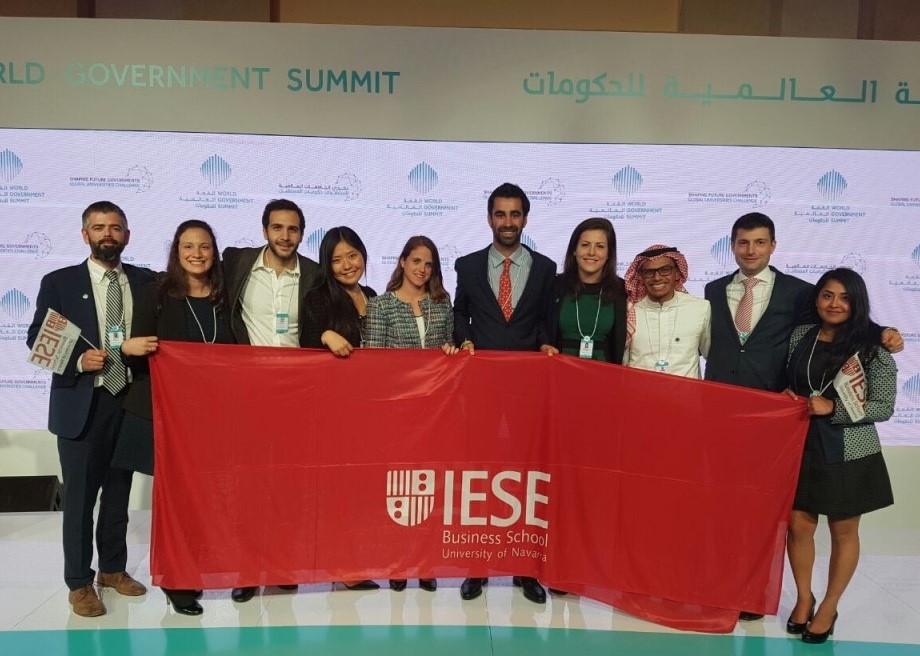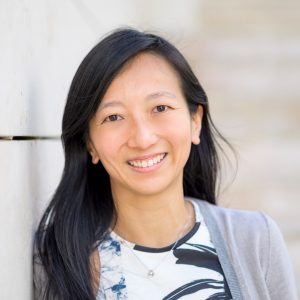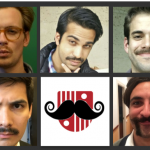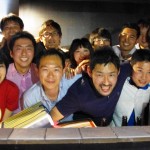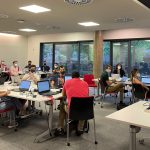A select group of IESE students was invited to Dubai last month to participate in the prestigious World Government Summit. Not only did they gain insights on the future of governments, they did IESE proud by coming in 3rd place in the inaugural Global University Challenge. In this post, two participants talk about what they learnt.
Justine Gonsalves (Class of 2017) was part of the team representing IESE at the Global University Challenge. She tells us why it was one of the best experiences of her MBA.
Last month, myself and 19 of my IESE MBA’17 classmates were privileged to attend the 5th edition of the World Government Summit in Dubai, United Arab Emirates. This trip was made possible by His Highness Sheikh Mohammed Bin Rashid Al Maktoum, UAE Prime Minister and Ruler of Dubai. The summit is part of Sheikh Mohammed’s vision to shape the next generation of governments with a focus on how they can harness innovation and technology to solve universal challenges facing humanity. The summit took place over 3 days and covered a wide range of themes that impact both the public and private sector, and the role of society at large. As MBA students, we are the future leaders of tomorrow which is why select students from top business schools around the world were invited to attend so we could get a better understanding of what the future holds. To say this was one of the best and insightful experiences of my MBA is an understatement and I’d like to share why.
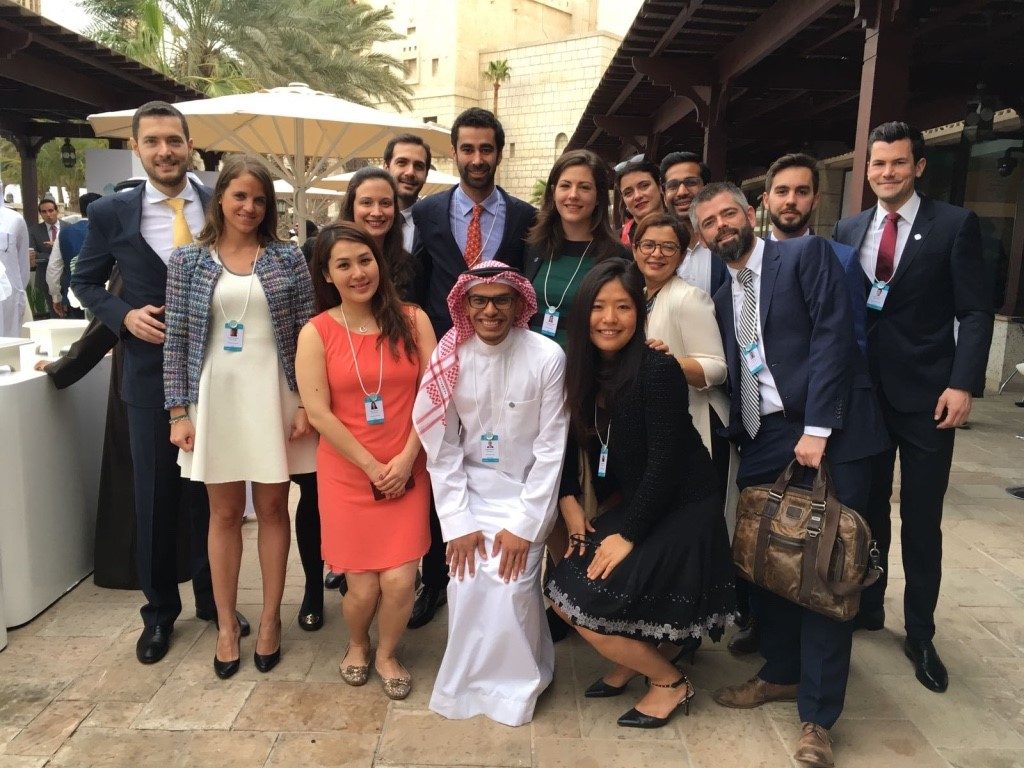
IESE Team at World Government Summit Dubai
The Summit hosted thought leaders and innovators from every corner of the world and they presented the latest trends in areas such as globalization, shared economy, world happiness, climate change, and gender equality to name a few. We were fortunate to listen to speakers such as Professor Klaus Schwab, Founder and Executive Chairman of the World Economic Forum; Dr. Jim Yong Kim, President of The World Bank Group; Elon Musk, CEO of Tesla and SpaceX; Christine Lagarde, Director of the International Monetary Fund. Discussion panels were moderated by accomplished CNN journalists such as Richard Quest and Becky Anderson. One of the key underlying themes of the conference was the concept of happiness. Nearly every speaker touched on the future happiness and well-being of societies. Klaus Schawb said in his opening address, “If we want to go forward, happiness and well-being should be at the center of future policy. We need to move out of our negativism and fear of the future and put humans at the center.”
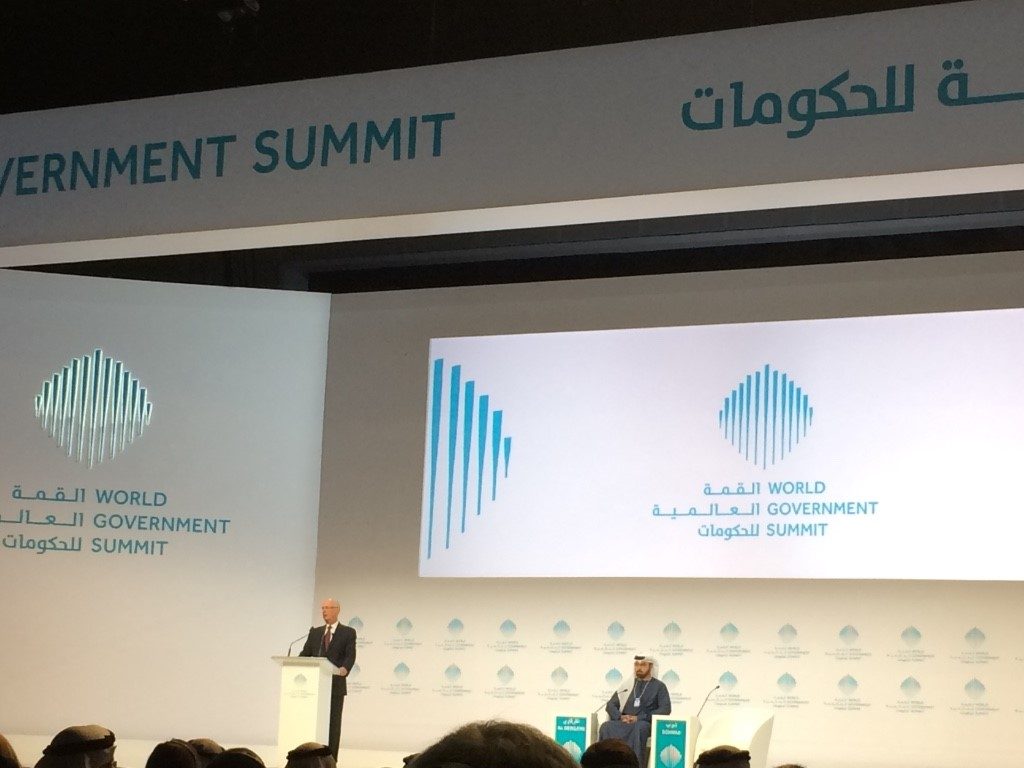
Klaus Schwab’s Opening Address
In addition to attending the keynotes, panels and workshops we took part in the 1st Global University Challenge competition where we had to innovate and present our vision of “How the Government of the Future would look like.” We competed against 12 other schools such as MIT, Harvard, Wharton, and LBS to name a few. The competition was a nice complement to the conference itself as many of the addresses and discussions hit home some of the key challenges facing our society. We had two days to work together as a team to really get outside our comfort zones and think about the government of 2050 and beyond. Our IESE team represented 10 countries across 4 regions and we each brought unique perspectives to the discussions from our home countries. That is what I love about IESE, you can always guarantee being able to discuss an issue from many different lenses. We worked in true IESE spirit to collaborate and strive to have a positive impact on business and society.
Our team focused on how to evolve the government to become agile, lean, and human-centered. We proposed using innovative technologies such as Blockchain and Artificial Intelligence to allow governments to free up resources to devote more time to braver and more human centered solutions. We were given 7 minutes to pitch our idea in front of an esteemed judging panel that included the Chief Creative Officer of IDEO, former Prime Minister of Estonia, and the Advisor to the Prime Minister of the UAE.
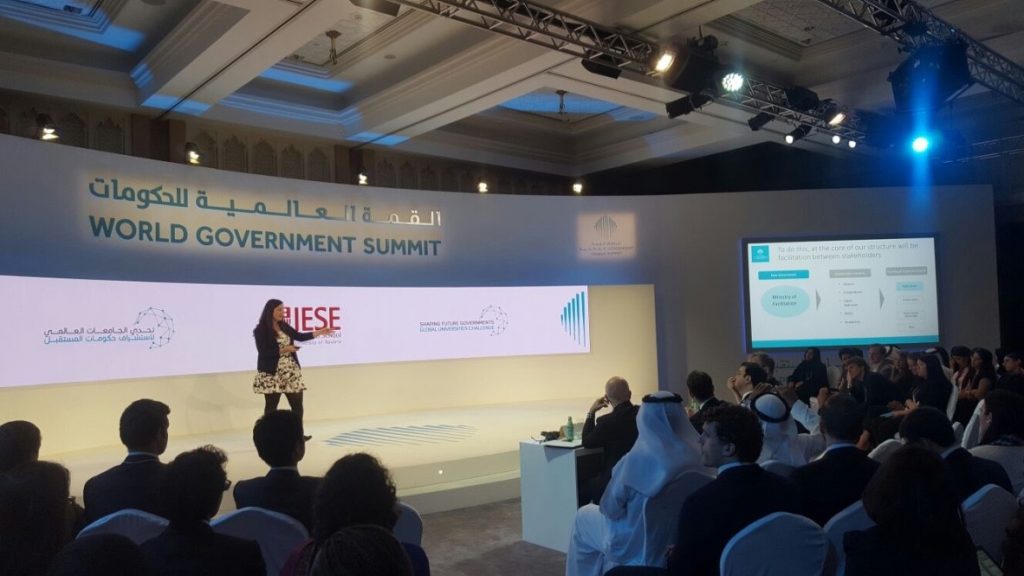
Presenting our vision of Future Governments
We also got to listen to the presentations made by our colleagues from the other attending schools and one thing was clear that we all had shared optimism and hopes for our future societies. We left the auditorium feeling proud of our work and grateful for the opportunity. Later that day in the final closing session of the World Government Summit they announced the winning teams and our team from IESE Business School placed 3rd after Harvard Kennedy School of Government (1st) and Stanford University (2nd). We couldn’t help but smile from ear to ear as the summit came to close, what better to wrap up an amazing experience in Dubai!
Overall, this has been one of the most enriching experiences of our MBA, and I would like to thank the Prime Minister’s Office of the UAE and His Highness Sheikh Mohammad Bin Rashid Al Makhtoum for this amazing initiative and the invitation. In addition, special thanks to Maysaa Munaf (MBA’17) and the rest of the IESE Middle East North Africa (MENA) Club who made this event possible.
Maysaa Munaf (Class of 2017), one of the lead organizers from IESE MENA Club, shares her perspective below.
Opening the World Government Summit in Dubai, Klaus Schwab pressed the importance that we “need to develop a national identity as global citizens with common values” focusing on what brings us together rather than what sets us apart. A message that hit close to home at a time when geopolitics and socioeconomic factors play a major role in determining our futures as MBAs and professionals looking to leave a positive mark on the business world.
The WGS tackled many difficult subjects this year be it the impact of climate change on food security, the making of an extremist, the future of employment in the wake of automation and much more. One message that was consistent throughout was that whilst it is a challenging time, the onus is on youth and young professionals to take the driver seat in shaping their future and being the change that they want to see in the world. The underlying purpose of the summit, however, is to shed light on the importance of harnessing a strong relationship between the public and private sectors. This partnership will be crucial now and increasingly so at time when artificial intelligence and robotics impact the labor market and governments are put in a position to determine the future of human workers in the light of the automation revolution.
Overall, whilst the WGS is a fantastic event that brings together incredible people from different backgrounds, beliefs, cultures and professions to discuss the future, for me personally, as a Middle Eastern MBA student and the MENA Club President, what I took away from the experience was a lot more than the great networking opportunities and inspirational keynotes. Personally, it was an incredible opportunity for me to show my colleagues and friends the place that I call home and see it through their eyes. It brought me a great sense of pride to witness the substantial investments that the region is making in the face of adversity to transform the future of its millennials.
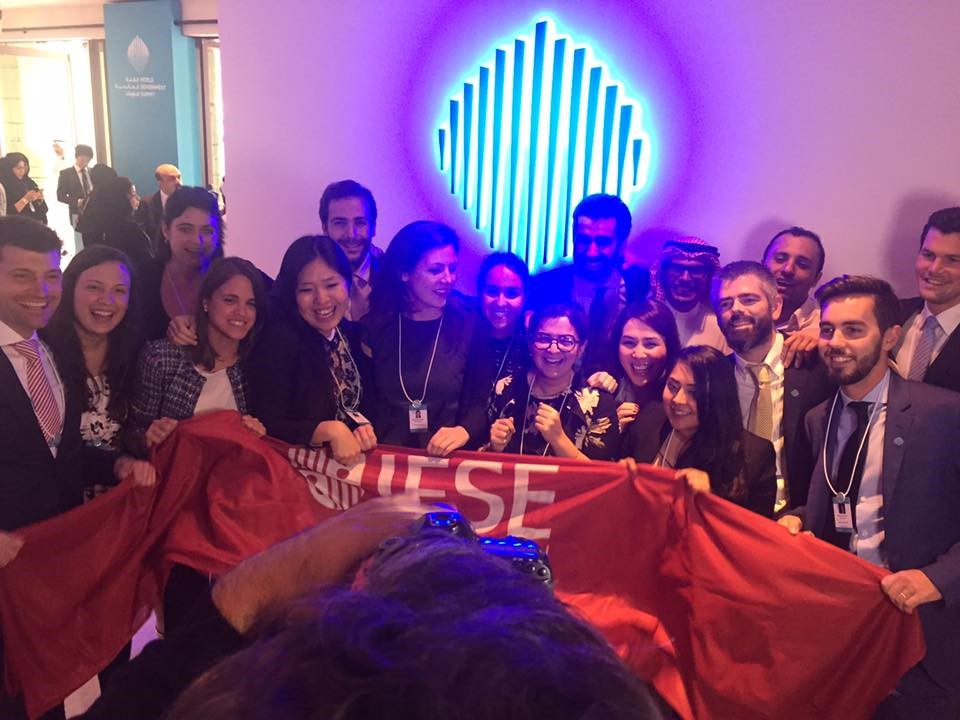
Celebrating 3rd Place at Global University Challenge


